Nuremberg
Refresher treatment for the rolling castle
It doesn't work without care. After more than 60 years, the saloon carriage and the terrace carriage of the Bavarian fairytale king Ludwig II are given a refreshment treatment. The DB Museum received funding from the Cultural Foundation of the German Federal States (Kulturstiftung der Länder) for the urgently needed restoration work.
Servicecenter
Monday to Friday 9 am to 1 pm
(except on public holidays)
Phone 0800 32 68 73 86
Museum visitors feel like they are in a fairy tale when they see the two railroad carriages from Ludwig II's court train. There is no need to travel to the foothills of the Alps to admire the architectural gems of the fairy-tale king, as they are on permanent display in the heart of Nuremberg at the DB Museum.
Most railroads in the 19th century offered three or four classes of carriages. Everyone was allowed to use them - if the ticket was paid for. Crowned heads in particular did not really like this, which is why in many countries there were separate carriages or trains for the highest and very highest rulers. One such royal class was the court trains of the Bavarian rulers. Their first carriages, manufactured in Nuremberg, rolled over the rails in 1847. Easily recognizable by their blue paintwork, they offered exclusivity and the finest comfort.
But everything can be surpassed. Shortly after his accession to the throne in 1864, Ludwig II, an expert in the extraordinary, had existing vehicles converted and ordered new ones. The idea was to create a Versailles on wheels in the style of French absolutism.
Preserving Ludwig II's saloon and terrace carriages is both a task and an obligation. Around 70 years after the last restoration, the aim is to make these works of art fit for the future with a “refreshment cure”. To ensure that this is was as gently as possible, a team of restorers worked at the DB Museum for several months.
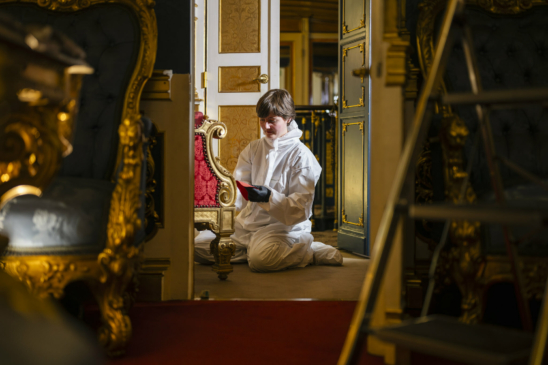
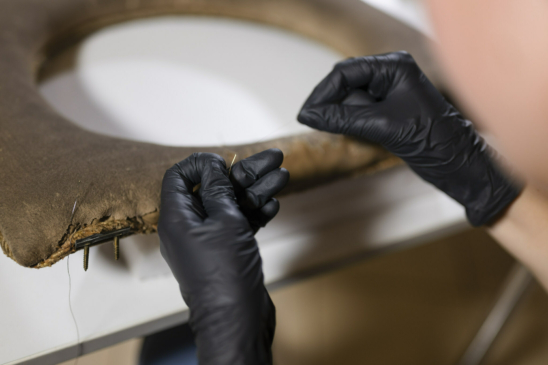
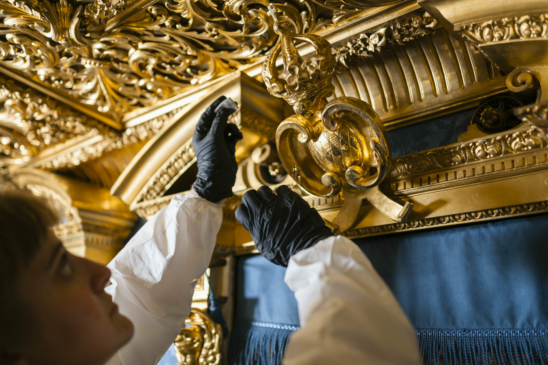
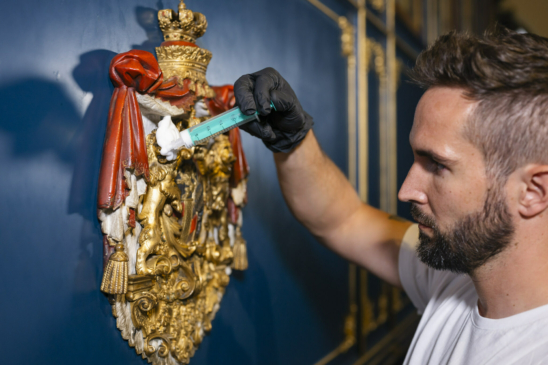
For example, the once velvety-soft, royal toilet seat cushion made of natural materials has traces of insect damage and damage from incident light. A tricky matter for the professionals, as the beige-green shade of the fabric varies depending on the area and orientation to the window, making it difficult to find a universally suitable match.
The damaged areas on the sumptuous upholstery of the furniture have to be underlaid with shiny silk, the larger additions fixed with fine silk thread. These techniques require a high degree of precision and knowledge of historical textiles in order to achieve unobtrusive and long-lasting results.
Cleaning the gilding is also extremely demanding. A special foamed cleaning mixture is used for this purpose. After the soaking time, the foam is carefully removed with a special device. To ensure that no residue remains, it must be cleaned again with a brush and ethanol.
The mix of materials and tasks is so varied that different specialists in wood, textiles and paintings are used for the work. The training of such restorers is correspondingly complex, with many first learning a trade and then completing a degree. With a trained hand, they then help to preserve fairytale-like objects.
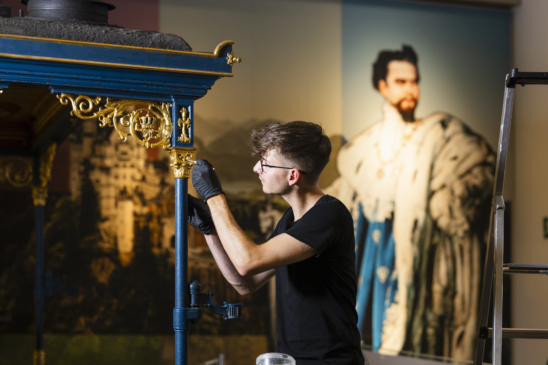
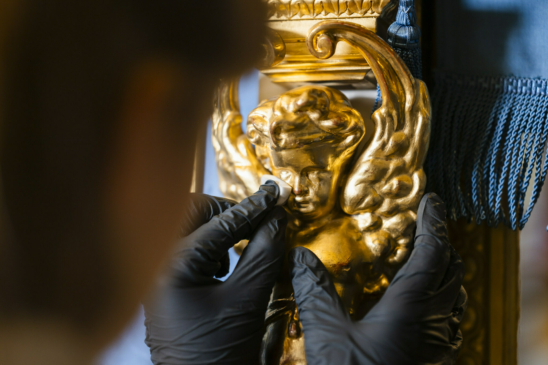
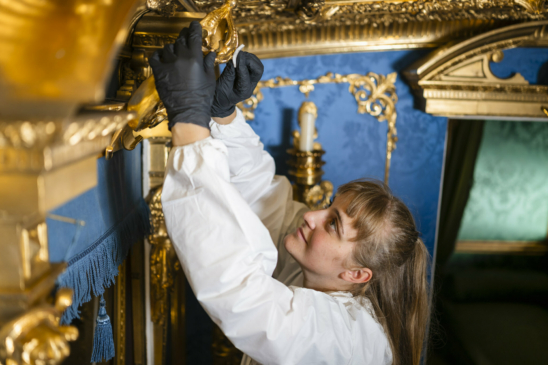
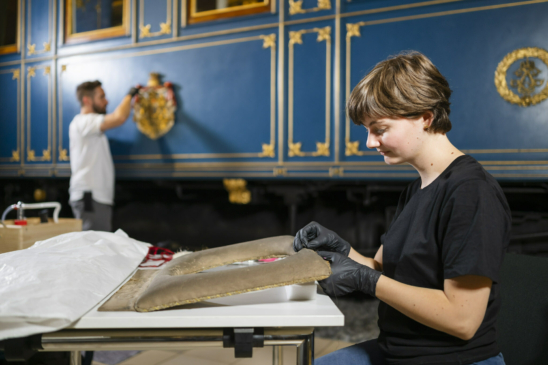
Whether historical textiles, woodwork or gilding - every restoration is a demanding craft that requires a high degree of precision and knowledge.
Thanks to funding from the Cultural Foundation of the German Federal States (Kulturstiftung der Länder), the extensive work on the two vehicles could be carried out at the DB Museum this year.
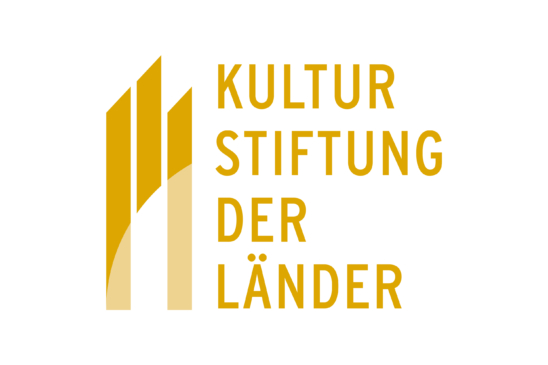
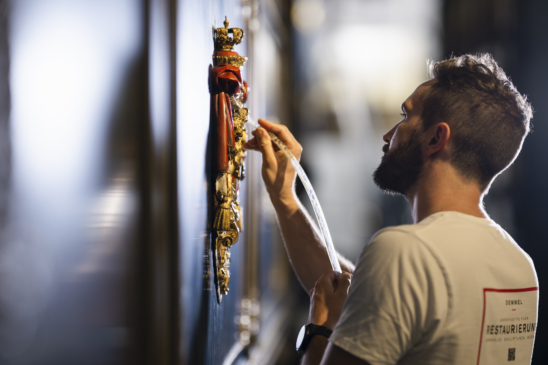
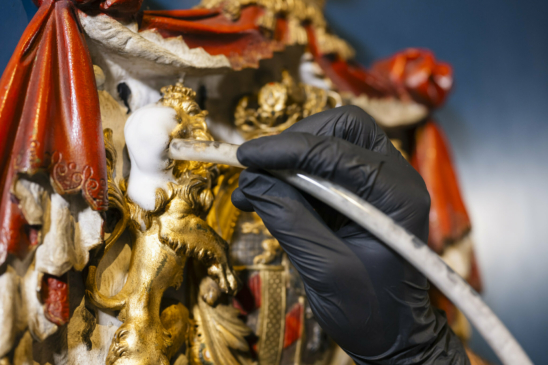

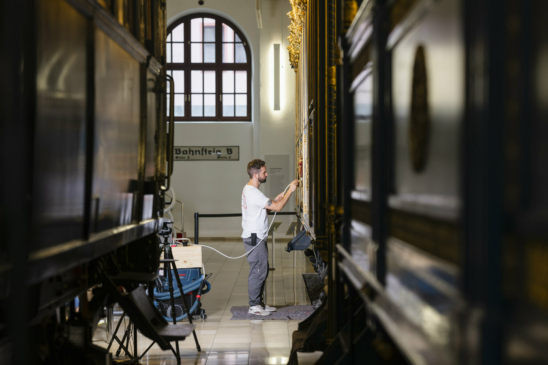
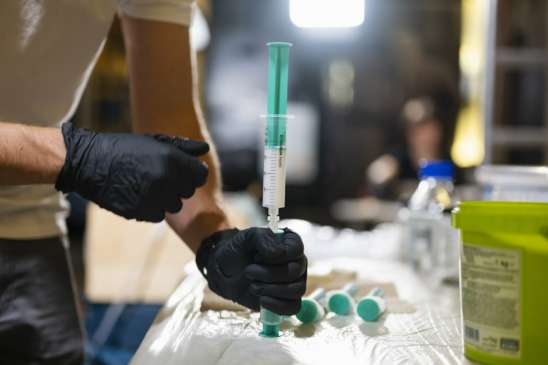
Copyright Fotos: DB Museum/ Uwe Niklas
Download our App
Visit the DB Museum
Address & Information desk
Deutsche Bahn Stiftung gGmbH
DB Museum
Lessingstrasse 6
90443 Nuremberg
Opening hours
Wednesday to Friday 9 to 17 o'clock
Saturday, Sunday, holidays 10 to 18 o'clock
Monday and Tuesday closed
Admission prices
| Adults | 10 € |
| Families (2 adults and up to 4 children) | 20 € |
| Children (aged 6 to 17) | 6 € |
| Reduced price | 8 € |
| School classes (per person up to and including 13th grade) | 4 € |
| Children up to 6 years of age | free |
| Current DB employees | free |